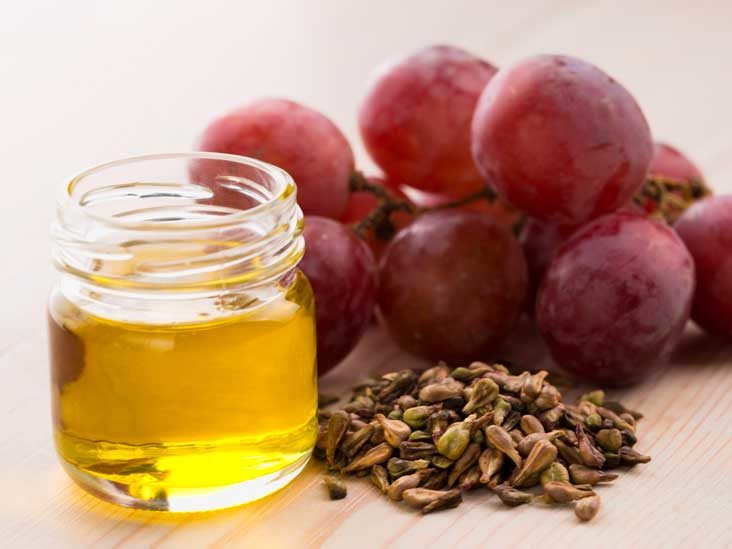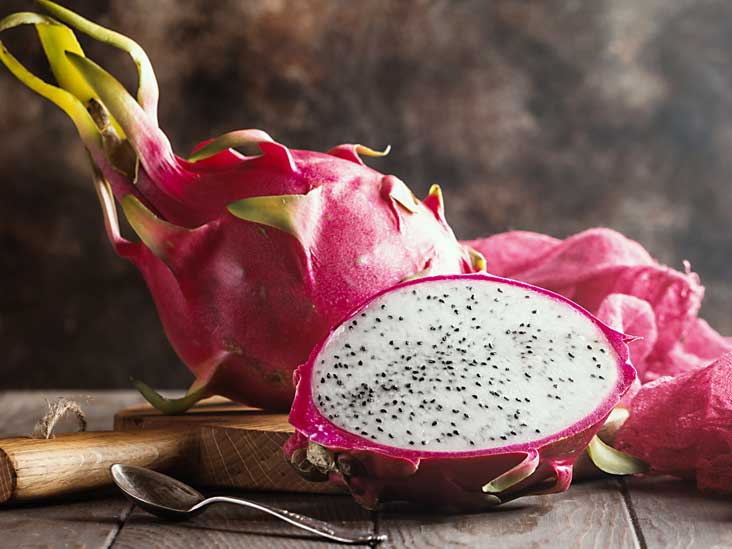Health Benefits of Grape Seed Oil
Grape seed oil is a type of oil that is extracted from the seeds of grapes and the benefits of grape seed oil is quite enormous. It has gained popularity in recent years due to its numerous health benefits.
In this article, we will discuss the benefits of grape seed oil in detail.
Here is an outline of the importance of grape seed oil:
- Introduction
Before outlining the benefits of grape seed oil, let’s take a look at the definition of grape seed oil and the brief history of grape seed oil
Grape seed oil is a vegetable oil that is derived from the seeds of grapes. It has a light flavor and a high smoke point, making it popular for cooking, baking, and frying. It is also used in cosmetics and personal care products due to its antioxidant and moisturizing properties.
The use of grape seed oil dates back to ancient civilizations, including the Greeks, Egyptians, and Romans, who used it for cooking and medicinal purposes. However, it was not until the 20th century that the oil began to be produced on a large scale.
In the 1970s, a French researcher named Dr. Jack Masquelier discovered that grape seed extract contained powerful antioxidants known as oligomeric proanthocyanidin complexes (OPCs). This discovery led to a renewed interest in grape seed oil and its health benefits.

Today, grape seed oil is widely available in grocery stores and health food stores, and it is used in a variety of products, including cooking oils, salad dressings, supplements, and skincare products.
- Nutritional Benefits of Grape Seed Oil
- High in antioxidants
- Rich in omega-6 fatty acids
- Other important vitamins and minerals
III. Here are some major benefits of Grape Seed Oil
High in Antioxidants
Grape seed oil is rich in antioxidants, including vitamin E and polyphenols. These compounds can help to protect the body against damage from free radicals and reduce the risk of chronic diseases such as cancer and heart disease.
Promotes Skin Health
Grape seed oil is often used in skincare products due to its ability to moisturize the skin and improve its overall appearance. The oil contains linoleic acid, which can help to reduce inflammation and improve the barrier function of the skin.
Additionally, the antioxidants in grape seed oil can help to protect the skin against damage from UV radiation and pollution.
Supports Heart Health
Grape seed oil has been shown to lower cholesterol levels and improve blood pressure, both of which are risk factors for heart disease. The oil contains a type of polyphenol called procyanidin, which has been shown to improve blood flow and reduce the risk of blood clots.
Anti-Inflammatory
Grape seed oil has anti-inflammatory properties, which can help to reduce inflammation in the body and alleviate symptoms of conditions such as arthritis and asthma.
Promotes Hair Health
The moisturizing properties of grape seed oil make it a popular ingredient in hair care products. It can help to hydrate the hair and reduce frizz, while also promoting healthy hair growth.
Rich in Omega-6 Fatty Acids:
Grape seed oil is a good source of omega-6 fatty acids, which are important for brain function, growth, and development. The oil contains linoleic acid, which is an essential fatty acid that the body cannot produce on its own.
Versatile Cooking Oil:
Grape seed oil has a high smoke point, making it a good option for cooking at high temperatures. It is often used in stir-fries, sautés, and baking recipes.
- Health Benefits of Grape Seed Oil
- Promotes skin health
- Supports heart health
- Anti-inflammatory properties
- Promotes hair health
Grape seed oil is known for its many health benefits, which include:
High in antioxidants: Grape seed oil is a rich source of antioxidants, including oligomeric proanthocyanidin complexes (OPCs), which help to neutralize free radicals in the body that can cause oxidative stress and damage to cells.
May reduce inflammation: Some studies suggest that grape seed oil may help to reduce inflammation in the body, which is a contributing factor to many chronic diseases, such as heart disease, cancer, and arthritis.
Supports heart health: Grape seed oil may help to lower cholesterol levels and reduce the risk of heart disease by improving blood circulation and reducing inflammation.
May improve skin health: Grape seed oil is often used in skincare products due to its moisturizing and antioxidant properties, which may help to reduce the signs of aging, such as fine lines and wrinkles.
May support brain function: Some studies suggest that grape seed oil may have neuroprotective effects and may help to improve cognitive function and memory.
May help with diabetes: Grape seed oil may help to regulate blood sugar levels and improve insulin sensitivity, which could be beneficial for people with diabetes.
Overall, grape seed oil is a healthy oil that can be used in a variety of ways to promote health and wellness. However, as with any dietary supplement, it is important to speak with your healthcare provider before using grape seed oil for therapeutic purposes.
- Culinary Uses of Grape Seed Oil
Grape seed oil is a versatile oil that is commonly used for cooking and baking due to its mild flavor, high smoke point, and health benefits. Here are some of the culinary uses of grape seed oil:
Cooking:
Grape seed oil has a high smoke point of around 420°F, which makes it ideal for high-temperature cooking methods like sautéing, frying, and roasting. It can be used as a substitute for other cooking oils, such as vegetable oil, canola oil, or olive oil.
Salad dressings:
Grape seed oil can be used as a base for salad dressings, mixed with vinegar or citrus juice, herbs, and spices to create a delicious and healthy dressing.
Marinades:
Grape seed oil can be used as a base for marinades for meat, poultry, or fish, as it can help to keep the meat moist and add flavor.
Baking:
Grape seed oil can be used in baking recipes that call for vegetable oil or butter. It can be used to make cakes, muffins, cookies, and other baked goods.
Grilling:
Grape seed oil can be used to brush on vegetables, meats, or seafood before grilling. It can also be added to marinades for grilling.
In addition to its culinary uses, grape seed oil can also be used as a healthy substitute for other oils in homemade mayonnaise, sauces, and dips.
However, it is important to note that grape seed oil is not suitable for deep-frying as it can become unstable at high temperatures and break down into harmful compounds.
-
How to Use
Grape seed oil is a versatile oil that can be used in a variety of ways. Here are some common ways to use grape seed oil:
Cooking: Grape seed oil has a high smoke point, which makes it ideal for cooking at high temperatures. It can be used for sautéing, frying, grilling, and roasting. It has a neutral flavor, so it won’t overpower the flavors of other ingredients in your dish.
Salad Dressings: Grape seed oil can be used as a base for homemade salad dressings. Mix it with vinegar or lemon juice, salt, and herbs to create a simple and healthy dressing.
Baking: Grape seed oil can be used in baking recipes as a substitute for other oils or butter. It can be used in cakes, cookies, and muffins.
Skincare: Grape seed oil can be used as a moisturizer for the skin. It is easily absorbed and won’t leave a greasy residue. Apply a small amount of the oil to your skin after showering to lock in moisture.
Hair Care: Grape seed oil can be used to moisturize and strengthen the hair. Apply a small amount to your hair and scalp, massage in, and leave for a few hours or overnight before washing out.
Massage Oil: Grape seed oil can be used as a massage oil. It is lightweight and absorbs easily into the skin, making it a popular choice for massage therapists.
When using grape seed oil, it is important to choose a high-quality, cold-pressed oil to ensure that it retains its nutritional properties. Store the oil in a cool, dark place to prevent it from going rancid.
Here’s a summary of the benefits of grape seed oil:
- High in antioxidants that help to neutralize free radicals and reduce oxidative stress.
- May help to reduce inflammation in the body.
- Supports heart health by improving blood circulation and reducing cholesterol levels.
- May improve skin health by moisturizing and protecting the skin from damage.
- May have neuroprotective effects and improve cognitive function.
- May help to regulate blood sugar levels and improve insulin sensitivity.
- Versatile and healthy oil for cooking, baking, and salad dressings.
- Mild flavor and high smoke point make it ideal for high-temperature cooking methods.
- Can be used as a healthy substitute for other oils in homemade mayonnaise, sauces, and dips.
- Widely available and affordable, and can be found in most grocery stores and health food stores.
In summary, grape seed oil is a nutrient-dense oil that offers numerous health benefits. It is high in antioxidants, promotes skin and hair health, supports heart health, and has anti-inflammatory properties.
Additionally, it is a versatile cooking oil that can be used in a variety of recipes.
SEE MORE ARTICLE HERE
Worst Foods for Erectile Dysfunction

A graduate of Computer Science and Information Management Technology. Diploma – Caregiving, Certificates – Dementia and Diabetes Awareness and Management. A researcher, blogger, songwriter, singer and acoustic guitarist. Born in an environment where natural talents such as healing are imparted at our natural birth. This natural talents of healing is the result of our genetic inheritance and the training from family environment.














